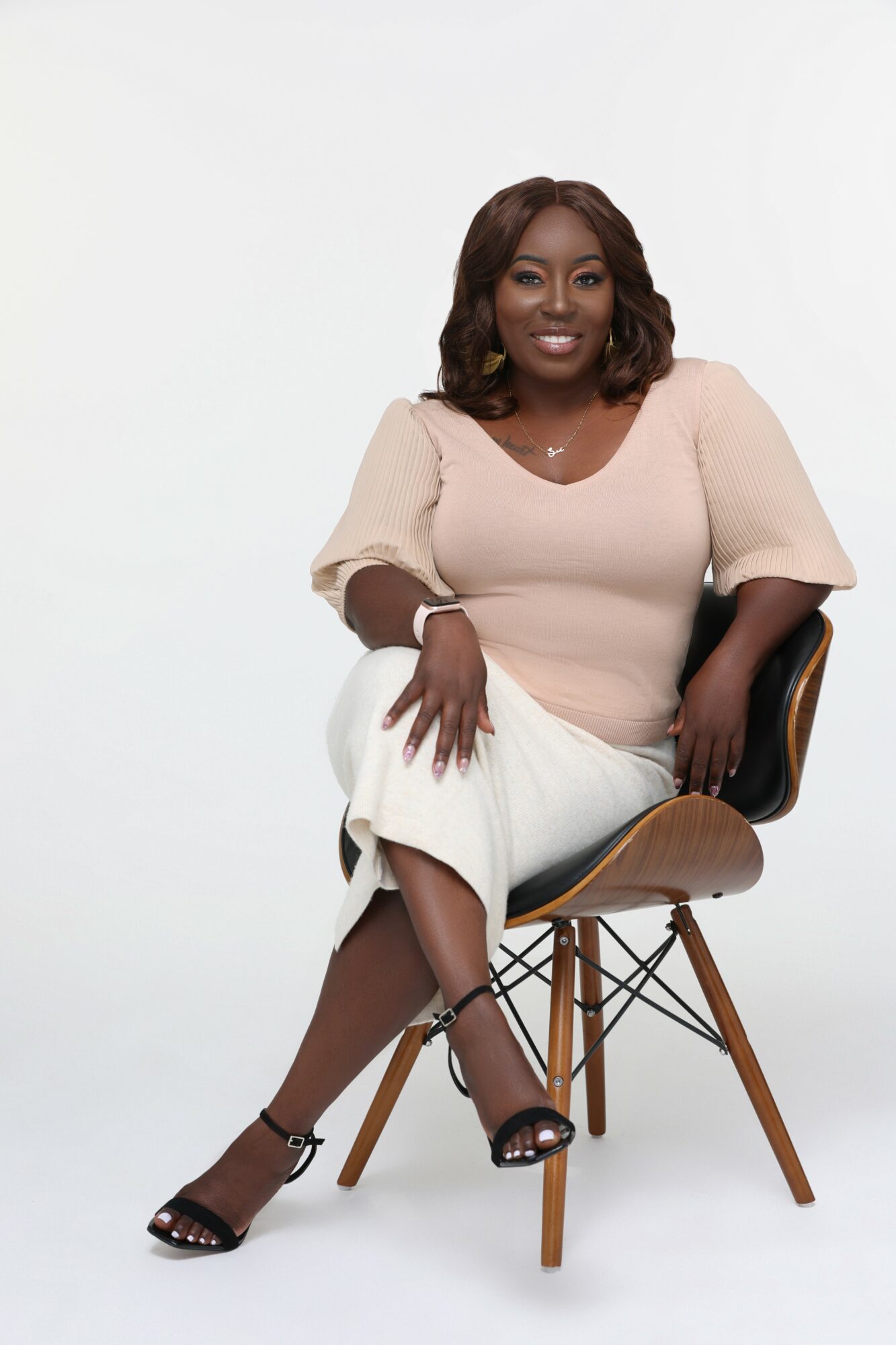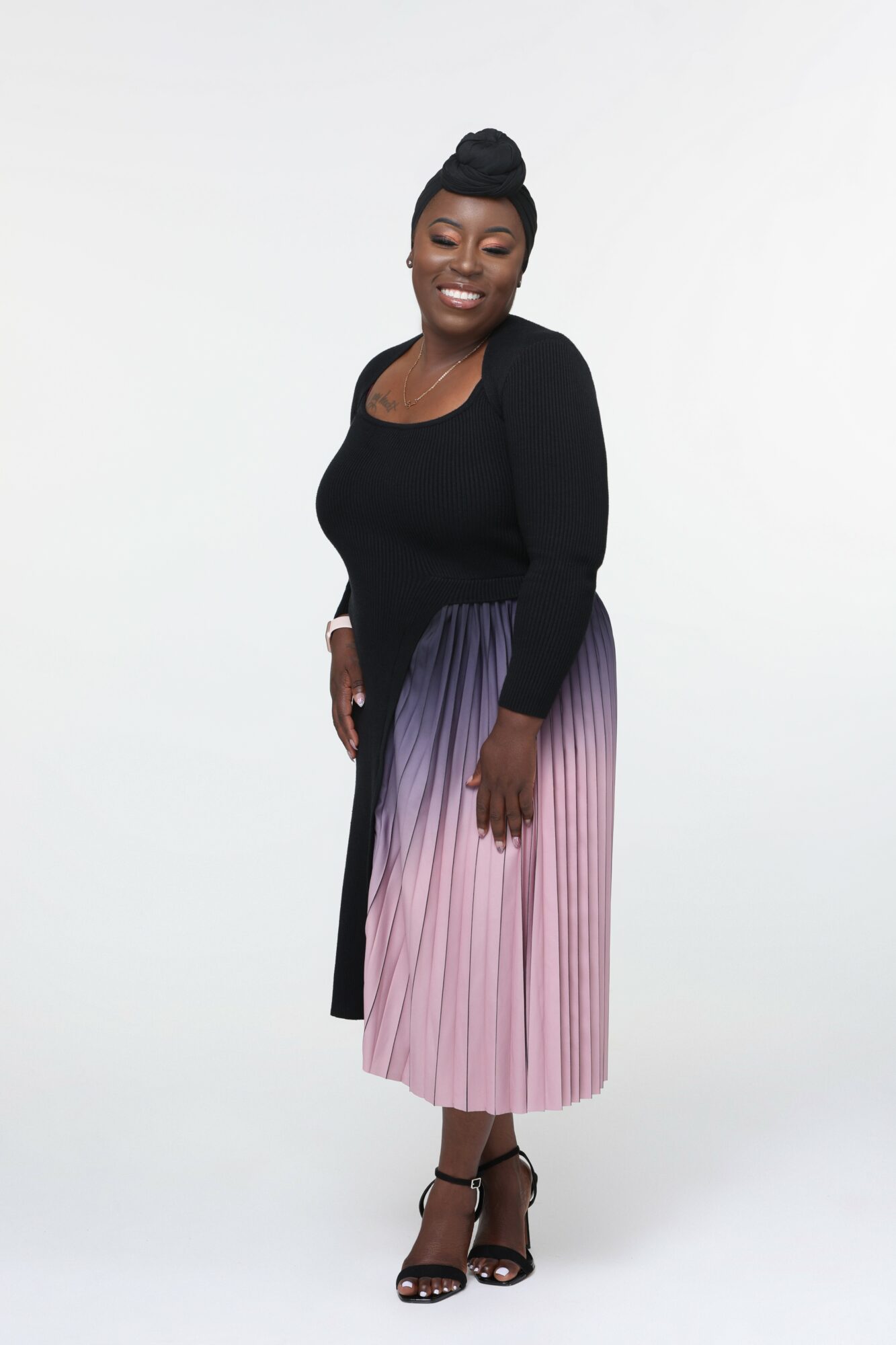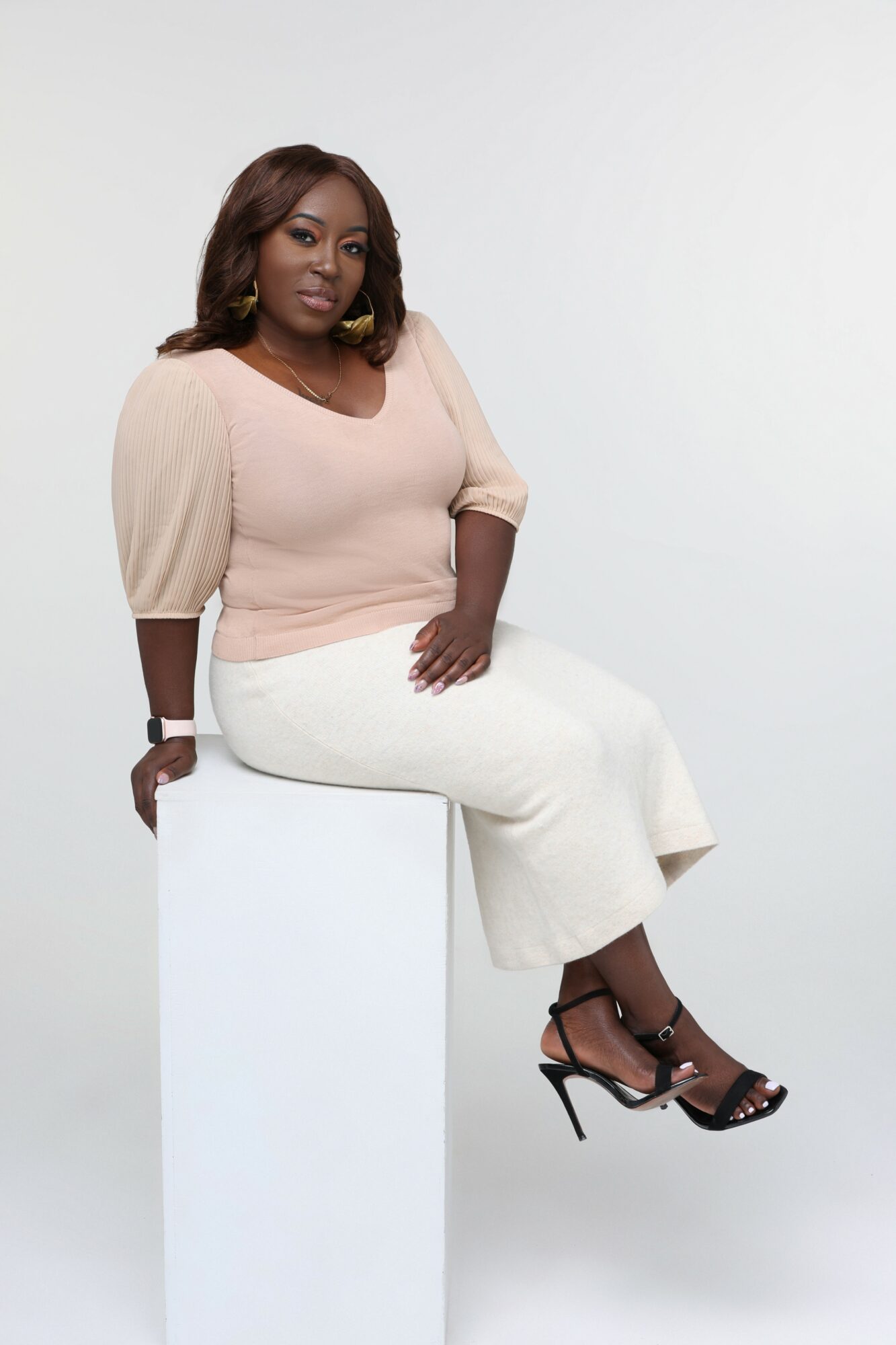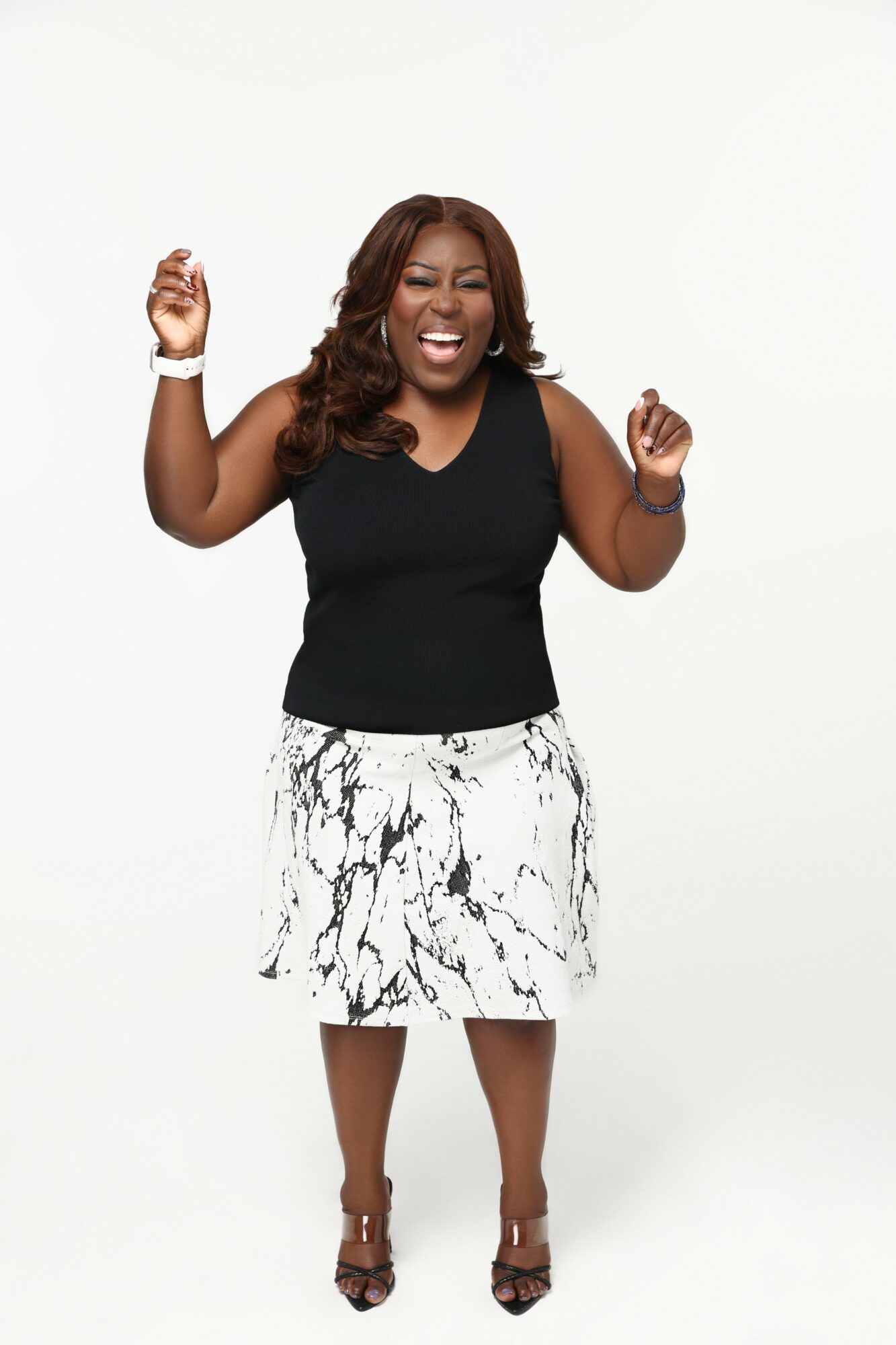

We recently had the chance to connect with Sia Moiwa and have shared our conversation below.
Hi Sia, thank you so much for taking time out of your busy day to share your story, experiences and insights with our readers. Let’s jump right in with an interesting one: What’s more important to you—intelligence, energy, or integrity?
Integrity is most important to me.
Intelligence and energy are valuable, but without integrity, they lack depth and direction. Integrity is the foundation that keeps everything else aligned. In my work through Instrument of God, integrity means showing up authentically; not just when it’s convenient or when people are watching, but even in the quiet moments when no one else sees the effort, the prayer, or the decision behind the action.
Integrity guides how I lead, counsel, and create spaces for healing. It’s what allows me to build trust with the people I serve, especially those navigating trauma or mental health challenges. When integrity is present, people feel safe. They can let their walls down and begin to heal. For me, integrity isn’t just a principle; it’s a way of life – the moral compass that keeps me accountable to God, to others, and to myself.
Can you briefly introduce yourself and share what makes you or your brand unique?
Hello, I’m Sia Moiwa, the Founder of Instrument of God, LLC — a space devoted to healing, restoration, and personal transformation. I carry the spirit of healing that transforms pain, empowers purpose, and embraces authenticity. My work centers on creating holistic and brave spaces where I cultivate the lives of people and their well-being.
As a Cultivator, I specialize in helping individuals recover from traumatic experiences and fostering mental and emotional wellness. My approach blends trauma-informed practices with faith-based principles to support people in their recovery journey, not just mentally, but also emotionally and spiritually. I believe healing isn’t about returning to who you were before the pain; it’s about becoming who you were always meant to be.
Beyond individual work, Instrument of God partners with purpose-driven organizations, schools, communities, and ministries to build cultures that prioritize mental health, compassion, resilience, and emotional safety. Whether through trainings, workshops, or counseling, my goal is to equip leaders and communities to embody healing-centered practices that uplift and empower others.
What makes Instrument of God unique is its heart: it’s more than a brand or business; it’s a ministry of restoration. Every offering is guided by faith, integrity, and a deep desire to see people and organizations walk in wholeness and freedom.
Right now, I’m expanding our reach through trauma recovery and suicide prevention trainings, mental health workshops, wellness initiatives, and collaborative projects that bridge healing, leadership, and culture. I truly believe that when people heal, communities heal, and that’s the mission that drives everything I do.
Great, so let’s dive into your journey a bit more. What breaks the bonds between people—and what restores them?
What breaks the bonds between people is often unacknowledged pain and the experiences of being misunderstood, invalidated, or emotionally neglected. When people feel unseen, dismissed, mishandled, or betrayed, something in the relationship fractures. Trauma, whether personal or collective, can quietly build walls where there were once bridges. Hurt that goes unhealed turns into distance, bitterness, and resentment, and silence becomes safer than vulnerability.
In many spaces, homes, churches, and workplaces, those invisible wounds show up as misplaced anger, disconnection, defensiveness, or a loss of trust. Sometimes they show up as perfectionism, people-pleasing, or emotional withdrawal, all ways the nervous system tries to protect itself from being hurt again. These patterns don’t just break relationships; they keep people in survival mode, longing for connection but afraid to reach for it.
But what restores those bonds is safety and truth. Healing happens in the presence of empathy, honesty, and a willingness to repair. At Instrument of God, I’ve seen that restoration begins when people feel safe enough to tell their story without fear of judgment, and when both parties commit to listening to understand rather than to defend. It’s in those moments that grace begins to rebuild what pain tried to destroy.
True restoration isn’t about pretending the hurt never happened; it’s about acknowledging it, tending to it, and allowing compassion to guide the process. When we meet one another with humility, accountability, and love, relationships can heal, and we can repair the rupture not back to what they were, but into something deeper, stronger, and more aligned with truth.
What have been the defining wounds of your life—and how have you healed them?
The defining wounds of my life have come from deep betrayal, loss, and the experience of being silenced in spaces where I expected safety. They include the childhood trauma of growing up in an abusive home, the pain of having my innocence taken, the rejection of love that was never reciprocated in dysfunctional relationships, and the abandonment, neglect, and lies from those who were meant to be a safe haven, including within the church. I’ve known what it feels like to be used by leaders I trusted, only to be dropped and made a castaway. Those experiences shook my faith in people, but they also deepened my dependence on God.
For a long time, I carried those wounds quietly, believing strength meant keeping it together. But real healing began when I stopped performing and allowed myself to grieve: when I gave myself permission to unlearn and relearn what I was truly created for and worthy of. I had to face the pain, not from a place of shame, but from a place of surrender; letting God into the very places I tried to hide. I had to find a safe community and engage in deep therapy to rewire my thoughts, break unhealthy patterns, and end generational cycles. I had to learn to trust myself again and affirm the internal truth that I am loved, seen, and whole. Healing, for me, hasn’t been a single moment; it’s been a process of remembering who I am beyond what happened to me.
Through that process, Instrument of God was birthed. It became both my ministry and my mirror; a reflection of what God can do when you choose to heal out loud. I now use what once broke me as a bridge to help others find their way back to themselves. My wounds taught me empathy, patience, and the sacredness of holding space for others’ pain.
I’ve learned that healing doesn’t erase the past; it redeems it. The very things that wounded me are the same things that shaped my calling: to be a vessel of healing, to walk with others through their darkness, and to remind them that their story still has purpose.
Alright, so if you are open to it, let’s explore some philosophical questions that touch on your values and worldview. What would your closest friends say really matters to you?
My closest friends would say that what really matters to me is living fully into the purpose God has placed inside of me and making sure that everything I’ve been given: my gifts, my voice, my love, and my wisdom, is used to uplift and empower others. They would say I care deeply about creating spaces where people feel seen, valued, and safe to be themselves.
They’d also say that I prioritize connection and authenticity, making sure people get to experience my love, my touch, my laughter, and my heartfelt words that speak life into them. For me, it’s not enough to simply exist; I want to leave an imprint on people’s hearts, a sense of hope, and the encouragement to walk into their own power and healing.
Beyond the personal, my friends would say that I’m a fighter of truth and that I’m passionate about seeing people and communities thrive holistically. That means I care about mental, emotional, spiritual, and relational wellness, and I’m willing to lean in, speak truth, and offer support, even when it’s uncomfortable, to help others grow into their full potential.
Ultimately, what matters to me is impacting lives with intention, generosity, and love, making sure that every interaction carries the possibility of restoration, healing, and encouragement. I want people to leave every space I touch feeling stronger, seen, and reminded of their worth.
Thank you so much for all of your openness so far. Maybe we can close with a future oriented question. What is the story you hope people tell about you when you’re gone?
The story I hope people tell about me is that I was a true instrument of God, carrying a divine sound and unique purpose. I want them to say that I loved deeply, spoke truth boldly, and lived fully aligned with who God called me to be, leaving nothing undone.
I hope they remember that I challenged others to step into their purpose, that I was a light that could not be dimmed and a presence not forgotten, and that I left them believing in their own worth and capacity to heal. I want them to say that I didn’t just offer words, but lived them; that my life was a testament to resilience, faith, and the transformative power of God’s love.
Ultimately, I want the story told to be one of impact, integrity, and restoration: that my presence in the world made people braver, freer, and more whole, and that through every life I touched, they felt the heartbeat of God’s love penetrating through me.
Contact Info:
- Website: https://www.instrument-ofgod.com
- Instagram: https://www.instagram.com/instrumentofgodllc/
- Linkedin: https://www.linkedin.com/company/instrumentofgodllc/
- Twitter: https://x.com/i_am_iog
- Facebook: https://www.facebook.com/InstrumentofGodLLC
- Youtube: https://www.youtube.com/@instrumentofgod
- Other: TikTok: https://www.tiktok.com/@iogllc



Image Credits
Point And Click Photography
http://www.pointandclick.photography
Photographer: Ke’er Orr










